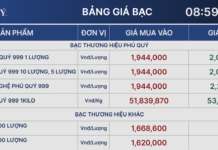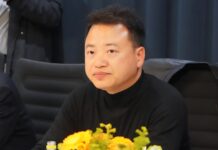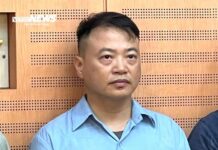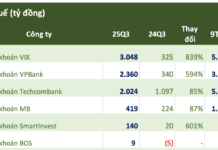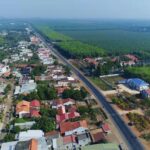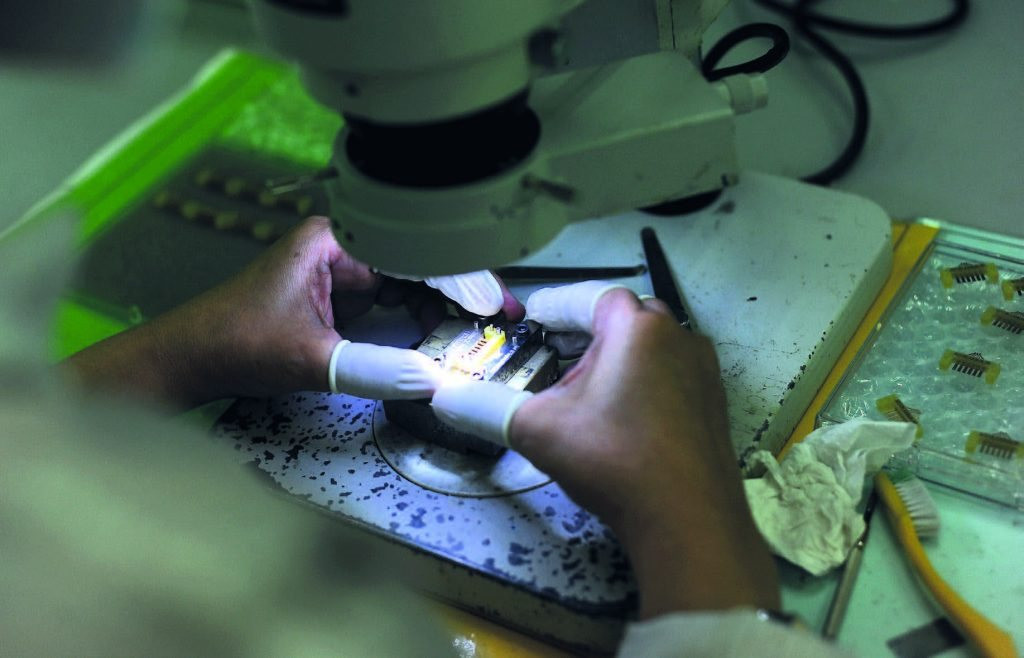
Malaysia is gearing up its efforts in the semiconductor arena, aiming to enhance its value chain by focusing on the higher-value endpoint segment, according to Bernama, quoting Malaysia’s Minister of International Trade and Industry, Tengku Datuk Seri Zafrul Abdul Aziz.
The minister noted that Malaysia has a competitive edge in the semiconductor industry, having been a key player in the electrical and electronics sector for over five decades.
Highlighting the sector’s significance, he mentioned that semiconductor exports currently account for 40 percent of the country’s total exports, with a global market share of six percent.
“We have a slight advantage due to our track record and the ecosystem established by both Malaysian companies and multinational corporations,” Tengku Zafrul stated, adding that the presence of multinationals has created ample opportunities for local companies to thrive.

Speaking at the Bloomberg online forum, ‘Spotlight on ASEAN Business: Charting New Frontiers,’ Malaysia’s Minister of International Trade and Industry emphasized the country’s goal to move up the value chain in the industry.
He elaborated on companies’ alignment with this goal, stating, “They are coming to Malaysia, and you can see the investments in bigger numbers.”
Tengku Zafrul also pointed out the numerous opportunities for ASEAN members to collaborate and propel the semiconductor industry, including establishing a regional ecosystem.
He cited the example of Singaporean companies expanding into Malaysia, where the front-end processes of semiconductor manufacturing are predominantly carried out in Singapore, while the mid and back-end processes are often performed in Malaysia.

ASEAN also possesses other advantages that can bolster the growth of the regional semiconductor industry, such as green energy, the minister added. This industry is energy-intensive, and companies are seeking green energy options to align with their sustainability goals and agendas.
“Malaysia is investing in green energy to support this industry, and I’m sure other ASEAN countries are doing the same,” he continued.
Global Corporations Eye Semiconductor Investments in Vietnam
Previously, The Nation reported that Thailand would have to pull out all the stops to attract semiconductor manufacturers as it competes directly with Vietnam and Singapore.
Thailand, Vietnam, and Singapore are in a tight race to become the regional leader in semiconductor manufacturing. The chip-making industry is experiencing a global boom driven by the demand for artificial intelligence and electric vehicles.
In the case of Thailand, the country’s Board of Investment (BOI) stated that it would propose new measures to expedite investments in manufacturing under Prime Minister Paetongtarn Shinawatra, with a focus on two key industries: semiconductors and batteries.
BOI’s Secretary-General, Narit Therdsteerasukdi, mentioned the proposal to establish a “Semiconductor Committee” to specifically oversee investment activities in this vital industry and attract US and European corporations to invest in Thailand in the coming years.
Meanwhile, Vietnam, Thailand’s eastern neighbor, is drafting a new Digital Technology Industry (DTI) law, offering certain privileges to global chipmakers investing in the country, according to Nikkei Asia.

Back in May, Vietnam’s Minister of Planning and Investment, Nguyen Chi Dung, mentioned at a regular government meeting that numerous global tech giants are eager to invest in the electronics, chip, and semiconductor industries in Vietnam.
Reinforcing Vietnam’s allure, Choi Joo Ho, CEO of the Samsung Complex in Vietnam, stated at the inauguration of the High-Tech Talent Development Program (SIC) that Vietnam is increasingly proving its importance in the global supply chain, evident through political, human resource, and infrastructure aspects, capturing the world’s attention.
Particularly, Vietnam’s significance in the information technology and high-tech sectors is expected to become even more prominent.
“High-tech companies worldwide are competing to seek investment opportunities in Vietnam,” emphasized Mr. Choi.
“Vietnam: Gateway to ASEAN for Global Investors.”
For the first time in Vietnam, the UOB-organized Gateway to ASEAN conference recently took place in Ho Chi Minh City, attracting over 600 guests. This included experts, business leaders, and trade partners from ASEAN countries, Hong Kong, and China, as well as representatives from various Vietnamese agencies.

